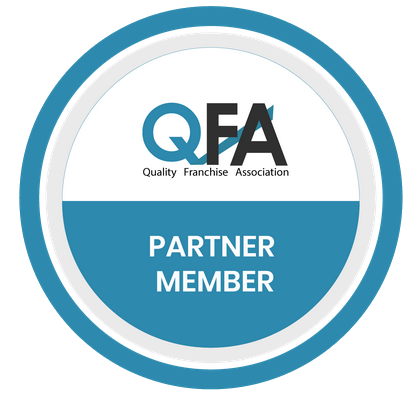Introduction
Unlike some other countries, the UK government doesn’t regulate the franchising industry. As such, there is no single franchise regulatory body or franchise ombudsman. This can lead to some unscrupulous franchisors taking advantage of unsuspecting franchisees. That’s where franchise associations come in!
In short, a franchise association is an organisation that represents the interests of franchisors and franchisees in the UK. They offer accreditation to companies that operate to a set of ethical standards. These associations help to ensure that franchisors and franchisees work together in a mutually beneficial and transparent way.
Why Are They Needed?

Franchise associations offer support, guidance, and resources to both parties to help them succeed in the franchise industry. They are needed because franchising can be complex, and it is essential to have a source of reliable information and support.
Franchise associations offer many benefits to franchisees, including:
- Access to information and resources
- Networking opportunities with other franchisees
- Training and education programs
- Advocacy and representation in the industry
Benefits of Accreditation
Being accredited by a franchise association offers several benefits for both franchisors and franchisees. For franchisors, accreditation helps to establish credibility and legitimacy, which can attract potential franchisees. Accreditation also provides access to valuable resources and networking opportunities, which can help to grow their business.
For franchisees, accreditation provides peace of mind, as they can be confident that the franchisor they are partnering with is ethical and operates to a high standard. Accreditation also provides access to training and support for franchisees, which can be invaluable for franchisees who are new to the business world and looking for franchise opportunities.
All three main Franchise Associations in the UK (discussed below) are both voluntary and self-regulatory, in other words, they are companies, and they are not run by the government.
What Criteria Are Franchisors Assessed Against for Accreditation?
Franchise associations typically have a set of ethical and operational benchmarks that they use to assess for membership. These benchmarks are designed to ensure that the franchisor operates in a transparent and ethical way and that they provide the necessary support and training for its franchisees to succeed.
Some of these include:
Proven Business Model
The franchise should have a well-established business model that has been tested and proven to be successful.
Financial Stability
The franchise should have a solid financial track record and be able to demonstrate its ability to support its franchisees.
Training and Support
The franchise should have a comprehensive training program for new franchisees, as well as ongoing support to help them succeed.
Franchisee Satisfaction
The franchise should have a high level of franchisee satisfaction, as measured through surveys or other feedback mechanisms.
Legal Compliance
The franchise should be compliant with all relevant laws and regulations, including those related to franchising.
Transparency
The franchisor should be transparent in its business practices, including its financials, operations, and franchisee support.
Brand Reputation
The franchise should have a strong brand reputation and be known for its quality products or services.
These benchmarks are used to ensure that franchisors operate in a fair and ethical manner and provide the necessary support for their franchisees to succeed.
Franchise associations may also require franchisors to adhere to a code of ethics or other standards as a condition of membership.
Should Prospective Franchisees Only Consider Accredited Franchisors?
It’s important to note that not all reputable franchisors choose to seek accreditation. This is despite that being accredited by a franchise association can offer some benefits.
Some franchisors may choose not to seek accreditation because they believe that their business practices and ethical franchising speak for themselves. Therefore, it’s not necessarily a red flag if a franchisor isn’t accredited.
Prospective franchisees should always look for a track record of success, transparent financials, and open communication channels, regardless of the accreditation status of a franchisor.
One also cannot assume that because a franchise system is accredited that they do not need to do their due diligence and thoroughly research any potential franchisors they are considering.
To start the due diligence process, ask for a Franchise Disclosure Document.
The Main UK Franchise Associations
British Franchise Association (BFA)
The BFA is the oldest and largest franchise association in the UK. Established in 1977 it now has more than 400 members. The BFA represents both franchisors and franchisees and has a strict code of ethics that all members must adhere to.
Some key facts about the BFA include:
- It offers training and accreditation for franchisors
- It has a dispute-resolution service for members
- It provides support and resources for franchisees
- Many large banks have received accreditation from the British Franchise Association as experts in comprehending the particular requirements of a franchise buyer in banking.
They have a comprehensive directory of BFA-approved franchises (known as Associate or Full Members), as well as Affiliate Members who are professional advisers to the industry.
This not only helps aspiring entrepreneurs find businesses that are reputable but also find consultants and those who can assist them further with their venture.
Franchisee Membership with the BFA is totally free for franchisees of accredited franchisors and offers representation, educational and promotional opportunities as part of a large community of like-minded entrepreneurs.
Identifying Members

Full Member:
To become Full Members, franchisors must prove a sustained trading, financial and franchising record over a period of time. The record of Full Members on openings, withdrawals and failures (if any), as well as their trading and financial performance, is subject to an initial assessment and periodic reaccreditation. Due to the nature of the evidence required full membership is often granted to more established franchisors.
Associate Member:
The requirements for Associate Membership are the same as for Full Membership, except that the criteria relating to the length of time the franchise has been operating, the size of the network and the range of experiences, are less demanding. Associate Members are franchisors working their way towards Full Membership. The BFA will determine whether a franchisor applying for membership is suitable for Associate or Full Membership.
Provisional Member:
Provisional Membership is available to businesses with a successful trading record in the UK of at least one year and that are in the process of developing a franchised business. The business will already have a franchise agreement that meets the BFA’s Code of Ethics and will be able to demonstrate that its development programme is founded on good franchising practices. Provisional Member companies commit to complying with the conditions of membership and to work to achieve the standards for Associate Membership within two years.
The Quality Franchise Association
The Quality Franchise Association (QFA) is a franchise association in the UK that aims to promote excellence and best practices in the franchise industry. It provides a platform for franchise businesses to showcase their quality and credibility to potential franchisees.
The QFA was established to address the lack of regulation and standards in the franchise industry. It aims to provide a reliable source of information and support for both franchisors and franchisees.
Benefits for franchisees:
- Access to a directory of QFA-approved franchises
- Access to resources and guidance on choosing a franchise
- Assurance that QFA-approved franchises have met the QFA’s standards for quality and credibility
- Advocacy and representation in the industry
- The QFA also has a strong network of financial institutions and other partners to help prospective franchisees and franchisors.
Identifying Members
Full Membership

Full membership is available to franchisors.
Partner Membership

Partner membership is available to businesses that wish to promote their services and/or products to full members & the UK franchising community.
International Franchise Association (IFA)
Although not UK-specific there is also the IFA. The IFA is a global franchise association with a presence in over 50 countries. It was established in 1960 and has more than 1,400 members.
The IFA represents franchisors, franchisees, and suppliers to the industry. Some key facts about the IFA include:
- It offers training and education programs for all members
- It has a code of ethics that all members must adhere to
- It provides advocacy and representation in the industry
Conclusion
In conclusion, while franchising in the UK isn’t government-regulated, franchise associations provide valuable accreditation and support to franchisors and franchisees.
Prospective franchisees should do their research and consider factors beyond just accreditation status when evaluating potential franchisors.






